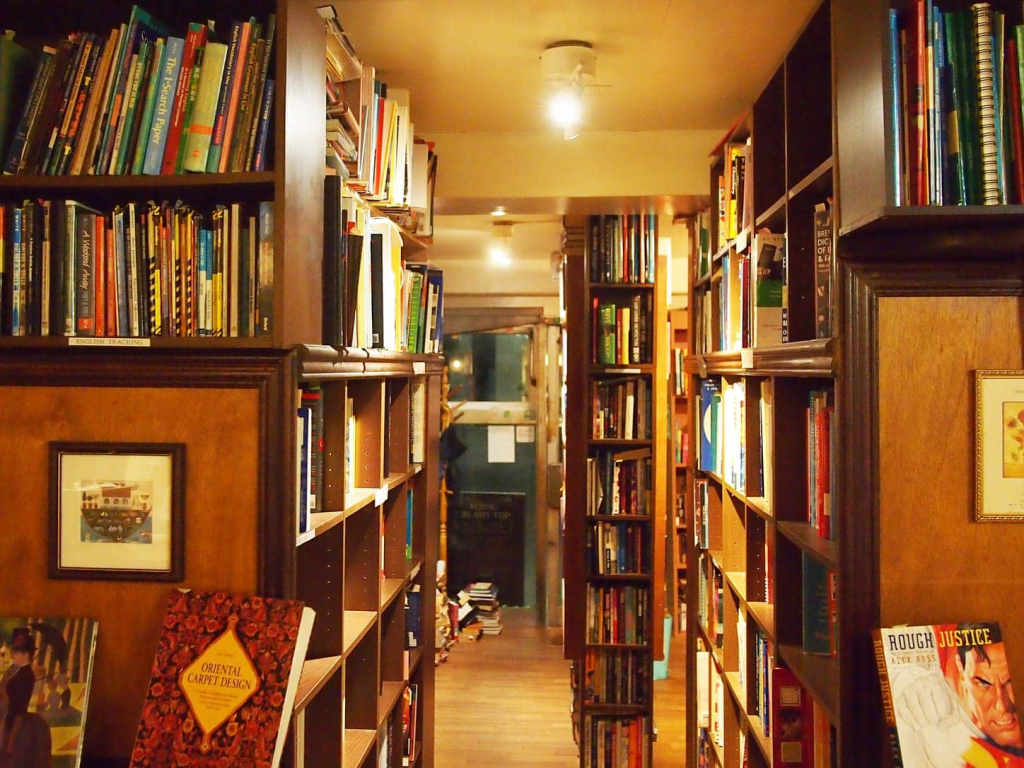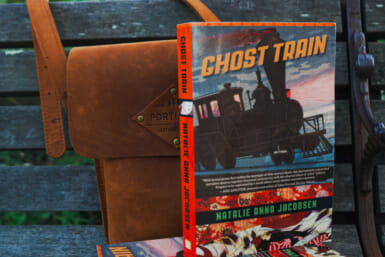Printed editions of books, and the independent brick and mortar stores that sell them, are on the wane – and have been for quite some time – even before the world economy was crippled by the new coronavirus pandemic.
The advent of eBooks has been an obvious contributor to this downfall. As has our increasingly symbiotic relationship with technology, and the manifold distractions it entails.
Not long ago we read novels as heavy as anvils, and salivated at jam-packed library shelves like children in a sweets shop. Now too often we ‘Ctrl F’ to what we need to know in 100-word blog posts and treat reading as a labor not a love; a mere means to an end.
While it’s easy to romanticize the past, technological progress will always result in some industries becoming obsolete: Tokyo’s independent bookstores were already in crisis mode. The Covid-19 pandemic only exacerbated this decline.
But just like our contracting attention spans, the bookstore industry has yet to pass its point of no return. While it still has a future, it’s heavily reliant on us.
COWBOOKSのバックに入って松浦弥太郎さんのグラノーラ届いた〜明日はアイスと食べてみる🍨 #ヤタロウズグラノーラ pic.twitter.com/J6tXUq7iy3
— イチハラマコ (@cogu_maco) May 18, 2020
Relics of the Past
With Amazon effectively monopolizing the world of book selling, independent bookstores have become quirky relics of the past; an outdated fashion trend with no real utility for technophilic city dwellers who live in apartments where every square-foot of free space is a luxury.
In fact, they are museums with purchasable curios, and we should treat them as such. Walk among the rickety shelves of any used bookstore worth its salt, and the sense of history is palpable. The earthy, vanilla-like smells of aging paper, the dog-eared corners and coffee stained pages, the fraying and tattered seams all tell tales within themselves.
Nick Ward, owner of Infinity Books in Tokyo’s Sumida Ward, a lone room of hand-built antique cabinets housing 15,000 English-language books running the gamut from pulp fantasy fiction to topical books on real-world racial divides, echoes this sentiment.
“We still get people walking in here and saying ‘wow’,” he tells me through a thick Yorkshire twang. “And it’s not just people in their fifties and sixties. We’re talking about backpackers and young people too, and that makes me feel very humbled.”
https://twitter.com/infinitybook/status/1257482822559789056
A Struggling Industry Faces its Most Grueling Challenge
During the pandemic, and its accompanying closure requests, Ward and fellow expat John Coyle, owner of What the Dickens! pub in Ebisu, started a crowdfunding-style campaign through Campfire, a Japanese website specializing in business support programs.
Those who wanted to support either of their businesses, could purchase discount vouchers through the website. “So many people supported John and I in the Campfire campaign, and we’re very grateful for that,” says Ward.
But the strains Covid-19 put on business don’t present novel woes for old-school booksellers. Ward talks about watching the rest of the foreign-owned bookstores in Tokyo go out of business not long after he opened Infinity Books six years ago. “If I didn’t diversify [through weekly music events], I would have gone under too.”
“I had the best weekly sales I’d had in the past six years”
Yet there was an unforeseen silver lining for Ward during the two months of stay-at-home measures from April through May, as Japan’s expat population sought some armchair entertainment. “I closed exactly at the time the virus was coming down, and I continued selling books online. [During the lockdown] all the foreigners in Japan seem to hunker down – I mean really hunker down,” says Ward. “I had the best weekly sales I’d had in the past six years.”
Though Japanese-owned, several other secondhand bookstores in the capital, selling titles mostly or exclusively in English, also turned to the internet to keep business alive. Kitazawa Shoten in Jimbocho, Book and Sons in Meguro and Cow Books in Nakameguro – which also appears in various areas around Tokyo as a mobile book service – have come through the pandemic intact.
While Tokyo’s booksellers are seeing customers walk through their doors again, the ongoing saga of trying to exist in a tech-centric world will invariably continue.
https://twitter.com/kitazawa_books/status/1266990400989835264
How to Lend a Helping Hand
If you want to help the independent bookstores, first of all, ask yourself a question: Does Amazon need any more of my money? I have a Kindle, and it’s a device of which I’m very fond – when I’m on the road, it’s practically irreplaceable.
But in the wake of this economically stifling pandemic, it’s the small business owners who are struggling. Not Jeff Bezos. Just one book purchase, a visit to a store or supporting its events can make all the difference.
Failing that, simply spread the word; that costs nothing. Independent bookstores are heading toward extinction; we can play a crucial role in ensuring the blood keeps pumping through their veins. Because frankly, a future in which they don’t exist, is a sad one indeed.
In spite of everything however, Ward remains confident about Infinity Books moving forward. “I think I’ll survive because I’m the last one owned by a gaijin in Tokyo. I was never in it for the money; if I was, I wouldn’t be doing it anymore. I do it for the love of it. I may work for Amazon as an independent seller, but we’re still a bricks and mortar. And while there’s a shred of a chance to keep this place open, I will try and do it.”
本日より、店舗の営業を再開しております。お客様ならびにスタッフの安全のためにも、ご来店の際は下記のご協力をお願い致します。
営業時間に変更などある場合は、当アカウントでお知らせいたします。https://t.co/IFf8R1sdaw pic.twitter.com/bM3WTPqCek— BOOK AND SONS (@bookandsons) June 1, 2020
Feature image: ©Ryan Routt









